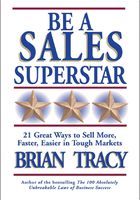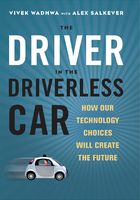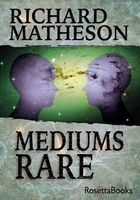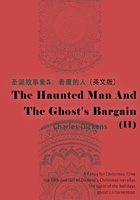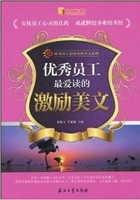On Friday, September 19, 2008, a 60 Minutes camera crew filmed B-roll, video without sound, for a profile of Hank that would air two days later. A meeting was staged in Hank's office and the senior staff was there, including me, his speechwriter. The profile had been long-planned, but 60 Minutes' timing was lucky.
For the previous 12 days, Hank had been the lead surgeon in the chaotic, bloody U.S. financial field hospital. On Sunday, September 7, the government took over mortgage giants Fannie Mae and Freddie Mac. On September 13, Merrill Lynch hastily sold itself to Bank of America. On September 15, Lehman Brothers filed for Chapter 11 bankruptcy. On September 16, the Federal Reserve spent $85 billion to rescue the humongous insurance company, AIG. Credit markets froze solid and it seemed possible that the U.S. economy could collapse. Blue chip companies and small businesses could barely get the credit needed to meet payroll and buy inventory. In a few short days, $200 billion had hemorrhaged out of money market mutual funds as investors scurried over the battlefield looking for safety. The stock market whipsawed up and down before finally closing at about even for the week. Headlines screamed about panic, crisis, disarray and fear.
This was the Friday of the week that Wall Street died, the week that assured that Barack Obama would succeed George W. Bush, the week that some say marked a turn towards socialism in a country built on free enterprise. Few on Main Street cried over the failure of some Wall Street banks. Yet if Hank had said it once he'd said it a dozen times, from Washington to London to Mumbai: capital markets are the lifeblood of any economy. And we had become suddenly and desperately anemic.
Hank and Ben Bernanke, Chairman of the Federal Reserve, rushed with loans and plans and guarantees from stretcher to stretcher, but the incoming kept coming, and they told President Bush and Congress that without a comprehensive rescue plan our future could make the "great" in the Great Depression an overstatement. We would need a new adjective: Grand? Deep? Really, really bad?
That morning, Hank had given a brief speech on A Comprehensive Approach to Market Developments, outlining the plan that eventually became the Troubled Asset Relief Program, or TARP. We had started drafting the remarks at 8 o'clock the night before; emails shot back and forth all night and Hank made the last changes just minutes before he gave the speech.
One trader said the trading floor was "pin drop silent" as Hank spoke. The Dow soared, up by about 400 points for a time, as investors conjured visions of safety and stability. By then, I knew well that Hank's words could move markets, but that morning I was overwhelmed by where I was, what I was doing and how little I understood.
Hank wanted to instill confidence that with the right plan and the right amount of money—in the hundreds of billions—we could resurrect a financial system gasping for survival. As he said then, "The financial security of all Americans—their retirement savings, their home values, their ability to borrow for college, and the opportunities for more and higher-paying jobs—depends on our ability to restore our financial institutions to a sound footing." A few months later, he would say it more succinctly: "This has never been just about the banks; it has always been about continued prosperity and opportunity for all Americans."
As the 60 Minutes camera filmed, Hank sat in his red and blue upholstered chair, a styrofoam cup of Diet Coke and ice on the table in front of him, and talked in vague generalizations in case the microphone was actually on. Then the camera left, the door closed, and the meeting began in earnest. The room and the mood were solemn. A portrait of Alexander Hamilton hung against dark wood paneling over the fireplace. Hamilton, who in his time had also faced crisis and criticism, looked over the Bloomberg monitors and family photos covering the credenza behind Hank's double partners' desk. The staff sat on antique wood chairs and a blue velvet couch, as the sky outside turned to evening and through a tall west-facing window the sharp rooflines of the White House blurred in the fading light.
It was the halfway point, even though it was 6 p.m., of what would be another long day, after many long months. If men in suits and ties can be described as shell-shocked soldiers, then that's what they were, and now they had only the weekend to draft the plan promised to rescue the U.S. financial system and send it to Capitol Hill.
Hank often said that he ran to problems. Now the problems were running after him and, like belching, obnoxious guests, they had invited themselves for a painful, long visit. So the man who was known as Hammerin' Hank on Wall Street and Hurricane Hank in the White House paced the room, his arms bent up at the elbows, his hands in the air, asking "How much is needed?" Was it better to ask for more money than for less, better to give Congress only an outline and let them fill in the blanks, as they would anyway no matter what we proposed?
In the middle of the discussion, Hank took a phone call. He listened and said, "Oh, no," and "God help us." He hung up the phone and said Morgan Stanley might not make it through the weekend.
In Edgar Allan Poe's story "A Descent into the Maelstr?m," an old fisherman tells of his ordeal and escape from a whirling and plunging funnel off the Norwegian coast. I closed my eyes for a second and imagined the monstrous whirlpool of the Maelstr?m cracking open the sidewalks of Manhattan and terrified men and women grasping at light posts, marble columns, chunks of cement: anything to escape the swirling vortex sucking companies, careers and our entire economy into a freezing, black sea.
The meeting ended; everyone set off to do their work. That weekend, I slept, walked and almost showered with my Blackberry to keep up on news. I wondered how many laws I'd be breaking if I told my 72-year-old mom to move what little money she had out of her Morgan Stanley account. And I wondered who and what would be left standing when this ended.
As speechwriter for Treasury Secretary Hank Paulson from May 2007 until January 20, 2009, I was the silent scribe and witness to acts of courage, clarity and confusion. This is a chronological, plainspoken history of what I learned before and during a worldwide financial crisis. And like a speech, it has a beginning, middle and end.


